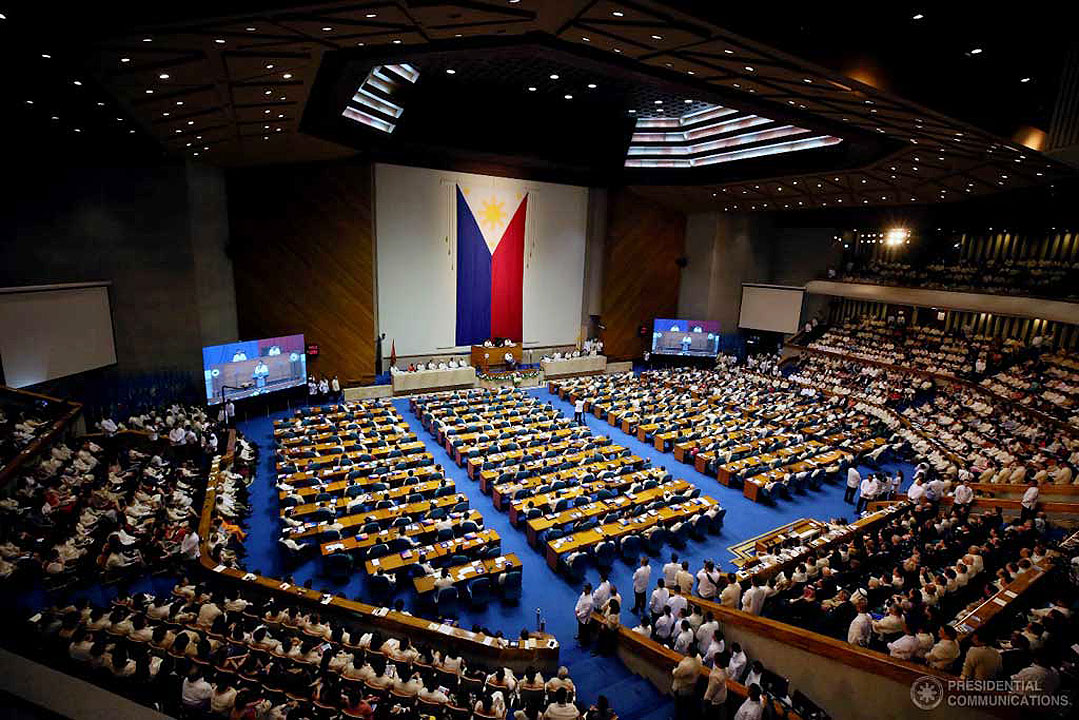Marcos eyes Charter change plebiscite with midterm polls

By Kyle Aristophere T. Atienza and Beatriz Marie D. Cruz, Reporters
PHILIPPINE President Ferdinand R. Marcos, Jr. on Wednesday said his government might hold a plebiscite on proposed changes to the 1987 Constitution alongside the 2025 midterm elections, a move that analysts said would make Charter change (“Cha-cha”) a key election issue.
Holding the plebiscite alongside the midterm elections is cost-efficient, he told reporters before flying to Australia on Wednesday for a state visit.
“We are studying that possibility because if we hold the election and the plebiscite separately, that would be like two polls, which would be expensive,” the President said. “Perhaps, we could do them together.”
The House of Representatives on Monday began deliberations on a resolution that seeks to lift foreign ownership limits on public utilities, education and advertising sectors in the Charter.
The Commission on Elections on Monday said it could hold the plebiscite together with the May 2025 elections, noting that there would be no additional expenses “except that we will request additional allowances for teachers.”
“We have also designed a sample ballot with a plebiscite question. Our machines can handle a yes or no question on the ballot as well,” Comelec Chairman George Erwin M. Garcia said.
“There’s some legal consequences because a plebiscite is slightly different from an election,” Mr. Marcos said. “If we are able to incorporate the two exercises together, as a practical matter, I think that would help.”
If the plebiscite is held simultaneously with the 2025 elections, “then the ‘Cha-cha’ discussions would inevitably be part of the midterm election issues,” said Jan Robert R. Go, a political science professor from the University of the Philippines (UP).
“It could even eclipse other more important issues like inflation, livelihood and national security,” he said in a Facebook Messenger chat. “Of course, we expect politicians to say that ‘Cha-cha’ will solve larger issues.”
Jean Encinas-Franco, who also teaches political science at the UP, worries that it could divert public attention from other national concerns.
“While it is more economical as they say, the potential impact is that it will indeed be the major electoral issue and may sideline other important and more urgent issues,” she said via Messenger chat.
Anthony Borja, a political science professor at De La Salle University in Manila, said Charter change might become more of a concern for senatorial candidates than congressmen.
“It will become a core issue if and only if it is effectively projected as something that would drastically affect the everyday lives of ordinary citizens,” he said via Messenger chat. “Its prominence as an issue depends on other pertinent concerns like foreign security and economic policy sans ‘Cha-cha’.”
The ruling coalition supportive of the President and Speaker would probably field senatorial candidates who will support their Charter change agenda, Arjan P. Aguirre, who teaches political science at Ateneo de Manila University, said via Messenger chat. “It is logical to think that the Duterte faction will support candidates who will be rejecting this move.”
Meanwhile, Neri J. Colmenares, a former congressman, said lifting foreign ownership limits in the 1987 Constitution presents security risks because foreigners could take control of the Philippines’ power transmission.
“If China, for example, controls our big generation and distribution utilities, a little commotion in the South China Sea and they could black out Luzon” the lawyer told the House committee of the whole. “Public service to the Filipino people becomes service to foreign stockholders.”
The National Grid Corp. of the Philippines (NGCP) is 60% owned by Filipino companies Monte Oro Grid Resources Corp. and Calaca High Power Corp., while the remaining 40% shares are held by the State Grid Corp. of China (SGCC).
Senators last year considered banning foreigners from having shares in NGCP, citing security risks amid worsening tensions with China.
Mr. Colmenares said the government should instead develop local industries and businesses.
“Foreign investment is of course an important component of any economic development but that is the secondary engine of growth,” he said. “The focus of the government [should not be] opening or liberalizing the economy but rather… on national industrialization.”



